#liver inflammation
Text
Delicious Recipes to Reduce Liver Inflammation Naturally
Liver inflammation, medically known as hepatitis, is a serious condition that can arise from a variety of factors, including infections, toxins, alcohol misuse, and metabolic disorders. Chronic liver inflammation can lead to severe complications such as fibrosis, cirrhosis, and even liver cancer. In an increasingly fast-paced world, poor dietary choices often contribute to liver problems, but…
#anti-inflammatory diet#healthy recipes#liver detox#liver health#liver inflammation#liver-friendly foods#turmeric benefits
0 notes
Text
World Hepatitis Day 2024: Raising Awareness and Promoting Action on Hepatitis
Annual Observation on July 28 Aims to Highlight the Dangers of Hepatitis and Encourage Testing, Treatment, and Vaccination
Dr. Amiya Ranjan
Specialist, Department of Gastroenterology, Tata Main Hospital
World Hepatitis Day, held on July 28, seeks to increase awareness of viral hepatitis and its associated health risks. This date marks the birthday of Dr. Baruch Blumberg, the Nobel laureate who…
#फोकस#chronic hepatitis B and C#Dr. Baruch Blumberg#hepatitis B discovery#hepatitis prevention#hepatitis testing#hepatitis treatment#liver inflammation#spotlight#viral hepatitis awareness#WHO hepatitis study#World Hepatitis Day
0 notes
Text
Is Liver Inflammation Puzzling You? Get Ahead of the Curve.
This guide empowers healthcare professionals with the latest advancements in diagnosing, managing, and treating liver inflammation.
#Liver inflammation#Liver function#Fatty liver disease#inflammation#physical therapy#wellness#Chronic inflammation#Acute inflammation#Systemic inflammation#anf therapy#anf academy
0 notes
Text
What are the causes and treatment options for fatty liver disease?
Fatty liver or the process of hepatic steatosis is a pathological condition in which too much fat is stored in liver cells. It is a common condition that lies on a spectrum from mild to severe, and if left untreated can result in liver inflammation, fibrosis, and even liver failure.
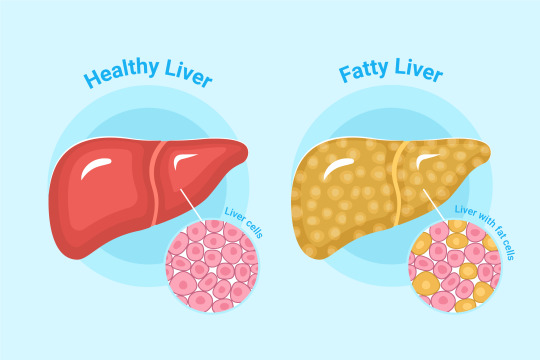
There are two main types of fatty liver disease:
Non-alcoholic Fatty Liver Disease: This type of fatty liver disease occurs in individuals who do not consume excessive amounts of alcohol. It is often associated with obesity, insulin resistance (pre-diabetes or type 2 diabetes), high blood pressure, and high cholesterol levels. Non-alcoholic Fatty Liver Disease is considered the most common liver disorder in Western countries.
Alcoholic Fatty Liver Disease: As the name suggests, this type of fatty liver disease is caused by excessive alcohol consumption. The liver metabolizes alcohol, and chronic alcohol abuse can lead to the accumulation of fat in liver cells. Alcoholic Fatty Liver Disease can progress to more severe forms of liver damage, including alcoholic hepatitis and cirrhosis.
Several factors can contribute to the development of fatty liver disease:
Obesity: Excess body weight, particularly abdominal obesity, is a major risk factor for fatty liver disease. It increases the accumulation of fat in the liver and promotes inflammation.
Insulin Resistance and Diabetes: Insulin resistance, a condition in which cells become resistant to the effects of insulin, can lead to increased fat storage in the liver. Type 2 diabetes, which is often associated with insulin resistance, is also a risk factor for fatty liver disease.
High Levels of Triglycerides: Elevated levels of triglycerides (a type of fat) in the blood can contribute to the accumulation of fat in the liver.
Metabolic Syndrome: Metabolic syndrome is a cluster of conditions that includes obesity, high blood pressure, high blood sugar, and abnormal cholesterol levels. Individuals with metabolic syndrome are at increased risk of developing fatty liver disease.
Certain Medications: Some medications, such as corticosteroids, tamoxifen, and methotrexate, can contribute to the development of fatty liver disease.
Genetic Factors: Genetic factors may predispose some individuals to develop fatty liver disease, although the role of genetics in its development is not fully understood.
Rapid Weight Loss: Rapid weight loss, particularly through crash dieting or bariatric surgery, can lead to the mobilization of fat stores from peripheral tissues, including the liver, resulting in fatty liver disease.
Fatty liver disease is a complicated condition which development involves multifactorial etiology including genetic, metabolic, and lifestyle factors. Therefore, the development of fatty liver a disease is often caused by interplay of different contributing factors
The treatment options for fatty liver disease typically focus on addressing the underlying causes of the condition, reducing liver inflammation, and preventing the progression of liver damage.
Here are some common treatment approaches:
Lifestyle Changes:
Weight Loss: For individuals with non-alcoholic fatty liver disease (NAFLD) who are overweight or obese, gradual and sustained weight loss through a combination of diet and exercise is often recommended. Losing as little as 5-10% of body weight can significantly improve liver health and reduce fat accumulation in the liver.
Healthy Diet: Adopting a balanced and nutritious diet low in saturated fats, refined sugars, and processed foods can help reduce liver fat and improve overall metabolic health. A diet rich in fruits, vegetables, whole grains, lean proteins, and healthy fats (such as those found in fish, nuts, and olive oil) is recommended.
Regular Exercise: Engaging in regular physical activity, such as brisk walking, jogging, swimming, or cycling, can help burn excess fat, improve insulin sensitivity, and promote overall liver health.
Medications:
Insulin Sensitizers: Medications such as pioglitazone or metformin, which improve insulin sensitivity, may be prescribed to individuals with non-alcoholic fatty liver disease (NAFLD) and insulin resistance or diabetes. These medications can help reduce liver fat and inflammation.
Cholesterol-Lowering Medications: Statin medications may be prescribed to individuals with fatty liver disease and high cholesterol levels to help reduce the risk of cardiovascular complications.
Antioxidants: Some studies suggest that antioxidants such as vitamin E may benefit individuals with non-alcoholic steatohepatitis (NASH), a more severe form of fatty liver disease. However, the use of vitamin E for this purpose should be carefully monitored by a healthcare provider due to potential side effects.
Management of Underlying Conditions:
Control of Diabetes and Hypertension: Managing underlying conditions such as diabetes and high blood pressure is essential for preventing further liver damage and complications.
Alcohol Moderation or Abstinence: For individuals with alcoholic fatty liver disease (AFLD), reducing or eliminating alcohol consumption is critical to prevent further liver damage.
Regular Monitoring and Follow-Up:
Individuals diagnosed with fatty liver disease should undergo regular monitoring to assess liver function, liver enzymes, and other relevant markers of liver health. This allows healthcare providers to track disease progression, adjust treatment as needed, and intervene promptly if complications arise.
In some cases, individuals with advanced liver disease or complications of fatty liver disease may require specialized care, including referral to hepatologists (liver specialists) or consideration for liver transplantation.
The fatty liver treatment in Bangalore is multifaceted and often involves a combination of lifestyle modifications, medications, and management of underlying conditions. The primary goals of treatment are to improve liver health, prevent disease progression, and reduce the risk of complications.
The topic of liver care is just for your knowledge purposes. If you want to get treatment and a diagnosis for fatty liver disease, you have to contact liver care specialists or visit hospitals.
#liver care#fatty liver disease#fatty liver treatment in Bangalore#Liver Disease Treatment in Bangalore#liver inflammation#liver care hospitals#liver specialists in Bangalore#Fatty Liver
0 notes
Text
Meta Description: Learn about the common signs, diagnosis methods, available treatments, and the impact of fatty liver disease on life expectancy in this comprehensive guide.
#gastroenterologist#endoscopy#celiac disease#hepatitis#digestive health#Fatty liver disease#Hepatic steatosis#Signs of fatty liver disease#Fatty liver disease diagnosis#Fatty liver disease treatments#Liver health#Liver function tests#Liver biopsy#Liver inflammation#Liver imaging#Liver complications#Liver transplantation#Liver fibrosis#Liver cirrhosis
0 notes
Text
What Is The Main Cause Of Hepatitis & What Happens If You Have Hepatitis?
The virus is the most common cause, but auto-immune hepatitis can also occur when the body's immune system attacks and destroys its own kidney cells. Hepatitis is primarily caused by a virus, but there are many other possibilities. A viral infection is the primary cause of hepatitis. And various types of viruses can lead to hepatitis-- some fairly benign, some very serious—such as cytomegalovirus (CMV) and Epstein-Barr virus (EBV).
0 notes
Text
NAFLD and Nursing: Essential Information and Interventions
What is Non-Alcoholic Fatty Liver Disease (NAFLD)?
NAFLD stands for Non-Alcoholic Fatty Liver Disease and is one of the most common liver disorders globally. The liver plays an essential role in many body functions, from producing bile that helps digest fats to storing glucose for energy. NAFLD occurs when there is an accumulation of excess fat in liver cells, that is not due to significant…
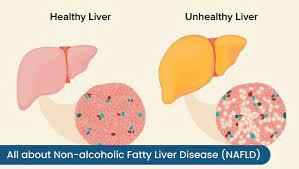
View On WordPress
#cirrhosis#Diet#elevated liver enzymes#exercise#fatigue#high blood sugar#insulin resistance#liver cancer#liver disease#liver inflammation#medication#NAFLD#NASH#Non-Alcoholic Fatty Liver Disease#non-alcoholic steatohepatitis#Obesity#prevention#triglycerides#weight management
0 notes
Text
Alcohol is an inflammatory shit storm to your brain, liver, gut, and body. It takes 72 hours to leave your system. During that time it crashes your dopamine, making you feel low. If you choose to drink, do it sparingly and follow it with plenty of water, green tea, high quality protein, lots of fruits & veggies, hydrating foods, healthy fats like nuts and seeds, and take a cold shower.
#alcohol #drinks #health #healthtips #heathy #brain #brainhealth #liverhealth #mentalhealth #healthylifestyle #healthyliving #healthyfood #nutrition #wellness #weightloss #healthyeating #healthcare #healthandwellness #healthiswealth #healthylife #stayhealthy #hangover #diet #food #selfcare #beer #wine #drinking #booze #whiskey
#alcohol#inflammation#health#nutrition#health tips#mental health#drinks#lifestyle#healthy#healthy lifestyle#healthy living#gut health#brain health#liver health
30 notes
·
View notes
Text
just so everyone knows people are NOT fucking kidding when they say to ease back into working out if you’ve fallen out of the habit for a while. i didn’t even think i did that much over the course of two days but i was basically bedridden and nearly screaming in pain yesterday and almost decided to go to the ER bc everything from my hips down hurt so bad i was seeing spots. i’m still taking painkillers bc of how much discomfort and (now) mild agony i’m in. don’t forget to stretch too lmao
#golly ollie#i’m so fucking serious i have NEVER been in pain like that#the last time i felt that severity of pain was when i had liver inflammation from a kratom overdose and did in fact spend the day and night#in the ER#idek if i’ll be feeling better by wednesday when i have to go back to work#bc i still feel like hell
4 notes
·
View notes
Text

Love how mad Mischa was that i dragged her to the vet once again that she kept rubbing her nose against the carrier backpack I carried her in and now she has a bright red booboo on the top her nose
#i have to carry her 1.6 km / 1 mile to the vet and then back and i guess she just felt like shredding her nose against the rubber grit#shhhh dont tell her that we're going back on friday to check on the inflammation#but shes feeling much better again! 😭🥹 i took this photo on the bench on the balcony where she begged for treats#and the soft treats are available again and i bought like 8 bags so we're good for at least a month or two#we just played and now shes begging for dinner and im so glad shes annoying again😭😭😭#i cried so much the past weekend she wouldnt come out of my closet and would scream in a very weird voice when i tried to touch her#the vet was so nice to her she was like :3 mischa we're gonna be friends i tell you you secretly like me do you :3#they we're so gentle and kind with her 😭#they made her a little cave out of towels so shed feel better#and her liver is doing better too 😭 i was so afraid we fucked it up completely with the surgery and then the pain meds and the treats#hate to say it but this expensive vet is really worth it even if the surgery and appointments are like 2.6k euro#and back in 2018 sissys 3 day kidney dialysis stay was like... half of that
2 notes
·
View notes
Text
one thing i do not understand is people who are resistant to taking modern medicine in general but particularly for everyday pains like a headache or allergies. sorry but i loooove chemicals and vaccines and drugs and if you want to suffer through springtime allergies or a headache because you "want your body to figure it out on its own" (?) i won't bother you about it but i will be over here snacking on excedrin and begging moderna for another covid booster 👍🏻
#i'm sure these peoples stomach lining and livers are in better condition than mine#however at some point being in pain or a state of inflammation becomes way more harmful than taking ibuprofen or claritin or whatever#also it sucks. sorry for being a hedonist but i dont usually enjoy pain#also new covid vaccine WHEN........#maybe part of it is that if i get a headache and don't take drugs about it it will almost always turn into a migraine so perhaps this is not#the case for these people? idk i don't understand letting yourself be in pain because? you think an ibuprofen makes you weak? or whatever#i mean if its an addictive drug then of course i understand trying to minimize your use but like normal otc things?#unless they make you feel bad/worse than you did why would you not take them. idk i love painkillers#me
5 notes
·
View notes
Text
yesterday my doc gave me a list of foods to avoid (for inflammation-related reasons, not for weird arbitrary dieting reasons) and on it is just like.... Every Single Food i've already stopped eating over the past ~3 years bc it makes me Feel Bad. there ain't a single food on that list that i eat regularly nowadays. on one hand it's nice to know that there's medical backing behind my "oof ouch my chronic pain" instincts but on the other hand. CUUUUREEEE MEEEEE.....
#the same frustration as looking up inflammation-mitigating tips & it's all already stuff i do#i want there to be a simple answer so bad. simply stop eating this one food and you'll be fixed#as it is the list is like 'dont eat pork beef liver heart venison or certain seafoods' and im like baby ive been there since 2020 :(#the ONLY thing i still eat EVER is beef and that's maybe once every 2-3 months if i have a bad craving for a burger or stew#autoimmune tag#food
14 notes
·
View notes
Text
You know, the other day when I was heading to the DMV about 15 minutes in to the drive (and it's a long drive and we wouldn't have a spare half hour) my heart sinks because I realized I forgot my glasses
Like, I was feeling physically ill, actually just super nauseous for like 10 minutes after I was hit with this realization, just physically awful
Except... I didn't
See, I knew I might forget my glasses, so a couple days before I took my glasses case out and set it on my wallet, so I reflexively picked it up, and after realizing there wasn't room in my wallet/phone pocket I put it in my key pocket
Which is why I work to be like a spider and store as much of my brain outside my head as possible
Take the knowledge I need to remember my glasses and store it in the form of the glasses in the spot where I always pick stuff up, because I know that I'm not gonna manage to remember that in my head. Very important to store bits of your mind in physical locations
But yeah, in spite of realizing that after like 10 seconds I was still feeling like I was gonna puke for like 10 minutes. Must have gotten just a huge shot of adrenaline or something
#do you know why adrenal glands are called that? It's because they sit on top of your kidneys#and your kidneys eh... my medical terminology is like 10 years old and unused; but I know stuff related to kidneys is called renal#I just can't remember their actual name; but I'm like 99% certain that the info about adrenal I'm feeding you is true#(don't feel like looking it up though; to be honest)#pretty sure hepatitis is inflammation of the liver; itis is inflammation it's the liver bit I'm fuzzy but pretty sure on#nocturia is having to piss in the night (well; think it may specifically be if you have to wake up to do it)#...are kidney stones renoliths? pretty sure lith is stone related; and I'm just guessing based of renal being kidney stuff#none of this is particularly interesting or impressive; it's literally just community college medical terminology#and of course gingivitis is inflammation of the gums#not sure I can dredge up any more stuff off the top of my head
2 notes
·
View notes
Text
A Guide to the Carnivore Diet
If you’ve been exploring ways to optimize your health through diet, you may have come across the carnivore diet. This eating plan has gained significant attention for its promise of improving health markers, especially for those with autoimmune conditions, metabolic issues, or those simply looking to reset their digestive systems. In this guide to the carnivore diet, we’ll dive into what it…
#affordable diet#animal products#B vitamins#bone broth#bone health#brain function#budget diet#budget-friendly#bulk buying#carnivore diet#chicken#collagen#diet tips#digestion#eggs#electrolytes#fish#food costs#grocery savings#gut health#health#Healthy Eating#high fat#inflammation#insulin sensitivity#keto#keto benefits#ketogenic diet#Lifestyle#liver
0 notes
Text
Acts Like Body Armor Against Flu, Colds and Viruses, Health Benefits of Quercetin – Dr Mercola - List Of Natural Anti-Histamine Supplements And Foods
Best Antihistamine and Quercetin Rich Foods
Natural anti-histamine and antioxidant pic.twitter.com/gBYO1Hw1ux— Cheyenne (@Chayenn72766251) April 18, 2023
Acts Like Body Armor Against Flu, Colds and Viruses – Health Benefits of Quercetin – Dr Mercola
Health Benefits of Quercetin
Quercetin has been shown to combat inflammation and acts as a natural antihistamine. Several studies have…
#allergies#anti histamine#arthritis#cancer#fatty liver disease#gout#heart disease#high blood pressure#histamines#inflammation#itching#metabolic syndrome#mood disorder#quercetin#Quercetin Rich Foods#rashes#runny nose#tumors
0 notes
Text
Understanding Liver Disease Causes, Symptoms, and Treatments in Bangalore
Liver is an important organ among many involved in providing many vital functions in the body such as detoxification, metabolism and nutrient storage. Nevertheless, several conditions can induce liver disease, therefore it no longer executes all its vital functions. Living in Bangalore and caring about your liver health means that you need to know the reasons, manifestation signs, and existing treatments for the liver diseases.
Understanding Liver Disease:
Liver disorders present a broad spectrum of conditions that damage the liver parenchyma and its capacity. Hepatitis, fatty liver disease, cirrhosis, and liver cancer are the most known liver diseases. Such conditions can be caused by viral infections, alcohol abuse, obesity, autoimmune disorders, genetic factors, and exposure to toxins and medications to begin with.
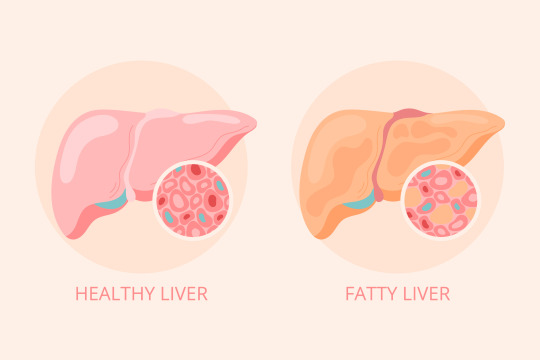
Causes of Liver Disease:
Viral Hepatitis: Hepatitis viruses, including hepatitis A, B, and C, can cause inflammation and damage to the liver. These viruses are typically transmitted through contaminated food or water (hepatitis A), blood or bodily fluids (hepatitis B and C), or sexual contact.
Alcohol Abuse: Excessive alcohol consumption over time can lead to alcoholic liver disease, characterized by inflammation, fatty deposits, and scarring of the liver (cirrhosis). Alcohol-related liver disease is a significant cause of liver-related morbidity and mortality worldwide.
Non-Alcoholic Fatty Liver Disease (NAFLD): Non-Alcoholic Fatty Liver Disease is a condition characterized by the accumulation of fat in the liver, not caused by excessive alcohol consumption. Risk factors for Non-Alcoholic Fatty Liver Disease include obesity, diabetes, high cholesterol, and metabolic syndrome.
Autoimmune Liver Diseases: Conditions such as autoimmune hepatitis, primary biliary cholangitis, and primary sclerosing cholangitis occur when the body's immune system mistakenly attacks the liver, leading to inflammation and damage.
Genetic Disorders: Inherited liver diseases, such as hemochromatosis, Wilson's disease, and alpha-1 antitrypsin deficiency, can affect liver function and lead to complications if left untreated.
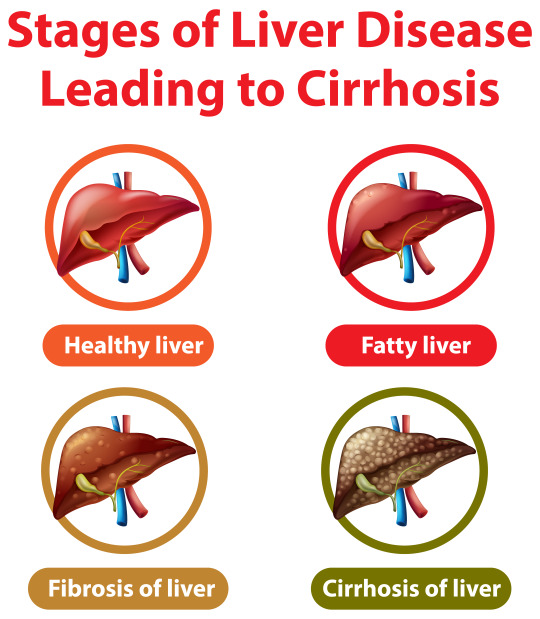
Symptoms of Liver Disease:
The symptoms of liver disease can vary depending on the underlying cause and severity of the condition.
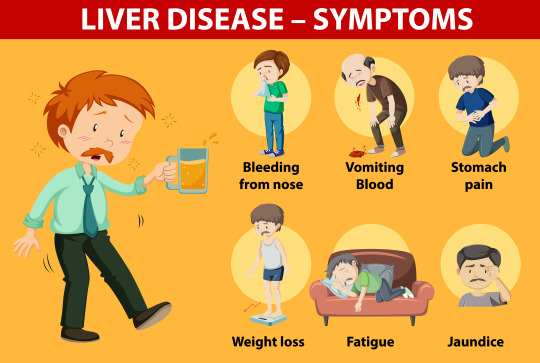
Common symptoms may include:
Fatigue
Jaundice (yellowing of the skin and eyes)
Abdominal pain or swelling
Nausea and vomiting
Loss of appetite
Unexplained weight loss
Dark urine
Pale-colored stools
Easy bruising or bleeding
Swelling in the legs and ankles (edema)
Mental confusion or cognitive impairment
Seeking Treatment in Bangalore:
Fortunately, Bangalore boasts world-class healthcare facilities and a network of experienced hepatologists and gastroenterologists specializing in liver disease diagnosis and management. If you're experiencing symptoms of liver disease or have concerns about your liver health, seeking prompt medical attention is crucial.
Diagnostic Tests:
Upon consultation with a healthcare provider, diagnostic tests may be performed to evaluate liver function and identify the underlying cause of liver disease. These tests may include blood tests to assess liver enzyme levels, imaging studies such as ultrasound or MRI, and liver biopsy for tissue analysis.
Treatment Options:
Lifestyle Modifications: For certain liver diseases, lifestyle changes such as abstaining from alcohol, adopting a healthy diet, maintaining a healthy weight, and exercising regularly can help slow disease progression and improve liver health.
Medications: Depending on the underlying cause of liver disease, medications may be prescribed to manage symptoms, reduce inflammation, or treat underlying infections. In the case of viral hepatitis, antiviral medications may be used to suppress viral replication and prevent liver damage.
Liver Transplantation: In advanced cases of liver disease, such as end-stage liver failure or liver cancer, liver transplantation may be considered as a life-saving treatment option. Bangalore is home to reputable transplant centers offering state-of-the-art surgical procedures and post-transplant care.
Supportive Therapies: Additional supportive therapies, such as nutritional counseling, vitamin supplementation, and management of complications like ascites or hepatic encephalopathy, may be recommended to improve quality of life and overall well-being.
Empowering Patients Through Education and Support:
Living with liver disease can be challenging, but patients in Bangalore have access to a supportive network of healthcare professionals, patient advocacy groups, and educational resources. These resources can provide valuable information, emotional support, and practical guidance to help patients navigate their liver disease journey with confidence and resilience.
Diagnosed with liver disease treatment in Bangalore will be easily accessible, due to the city's advanced infrastructure for healthcare and highly skilled personnel. Through the realization of the causative factors, recognition of symptoms and prompt medical treatment, the individuals would be able to respond to the advancement of liver health and possibly subsidize the influence of liver disease on their lives. Patients in Bangalore have a secure platform to practice a healthy life or even medical treatments and transplant options when they require such care and support at any point of the way If you are suffering from the signs of liver disease or your loved one is showing them, do not hesitate reaching a health care provider in Bangalore to have a personal evaluation and get treatment. First and foremost, your liver health matters, and with appropriate care and support, it is possible to take back your life and enhance your general well-being.
So for the sake of studies, these details are for educational purposes only. If you have to get engagements about diagnoses and surgeries, you can speak first at the hospitals or the clinics by yourself from specialists.
#Hepatitis b treatment in Bangalore#Chronic Hepatitis b treatment in Bangalore#Hepatitis C treatment in Bangalore#Hepatitis A treatment in Bangalore#Hepatitis E treatment in Bangalore#fatty liver treatment in Bangalore#Liver inflammation treatment in Bangalore#Liver disease treatment in Bangalore#Liver#hepatitis#livercare#clinics#hospitals
1 note
·
View note